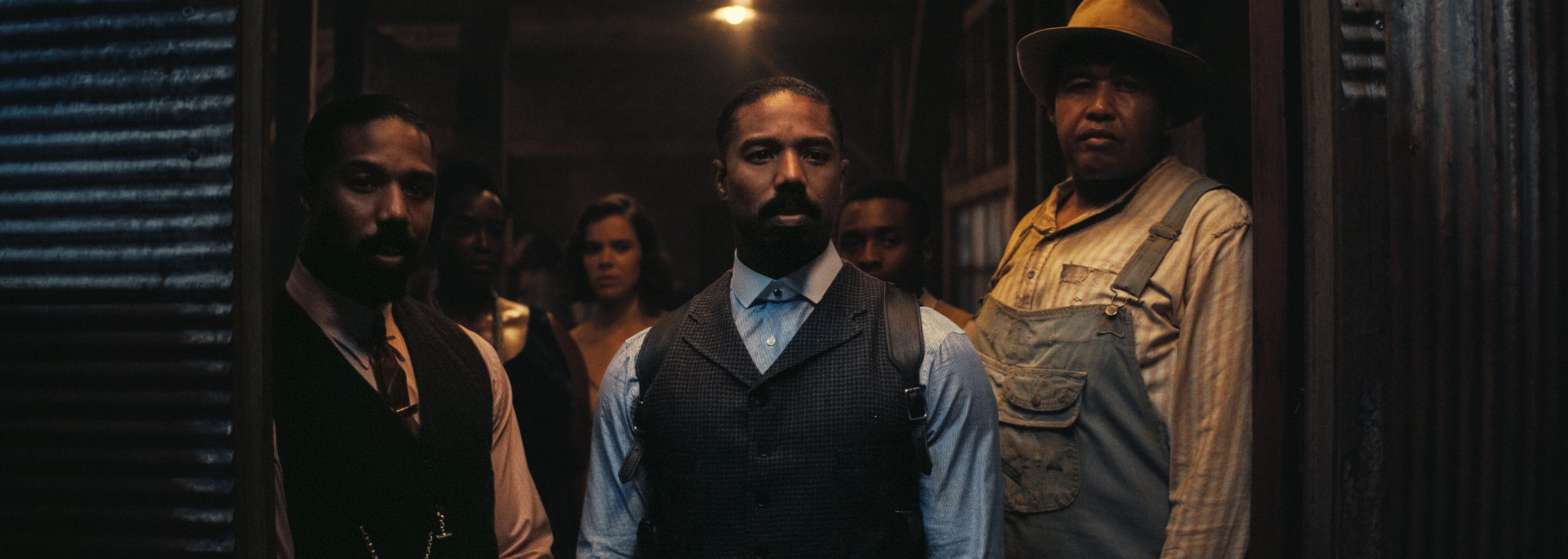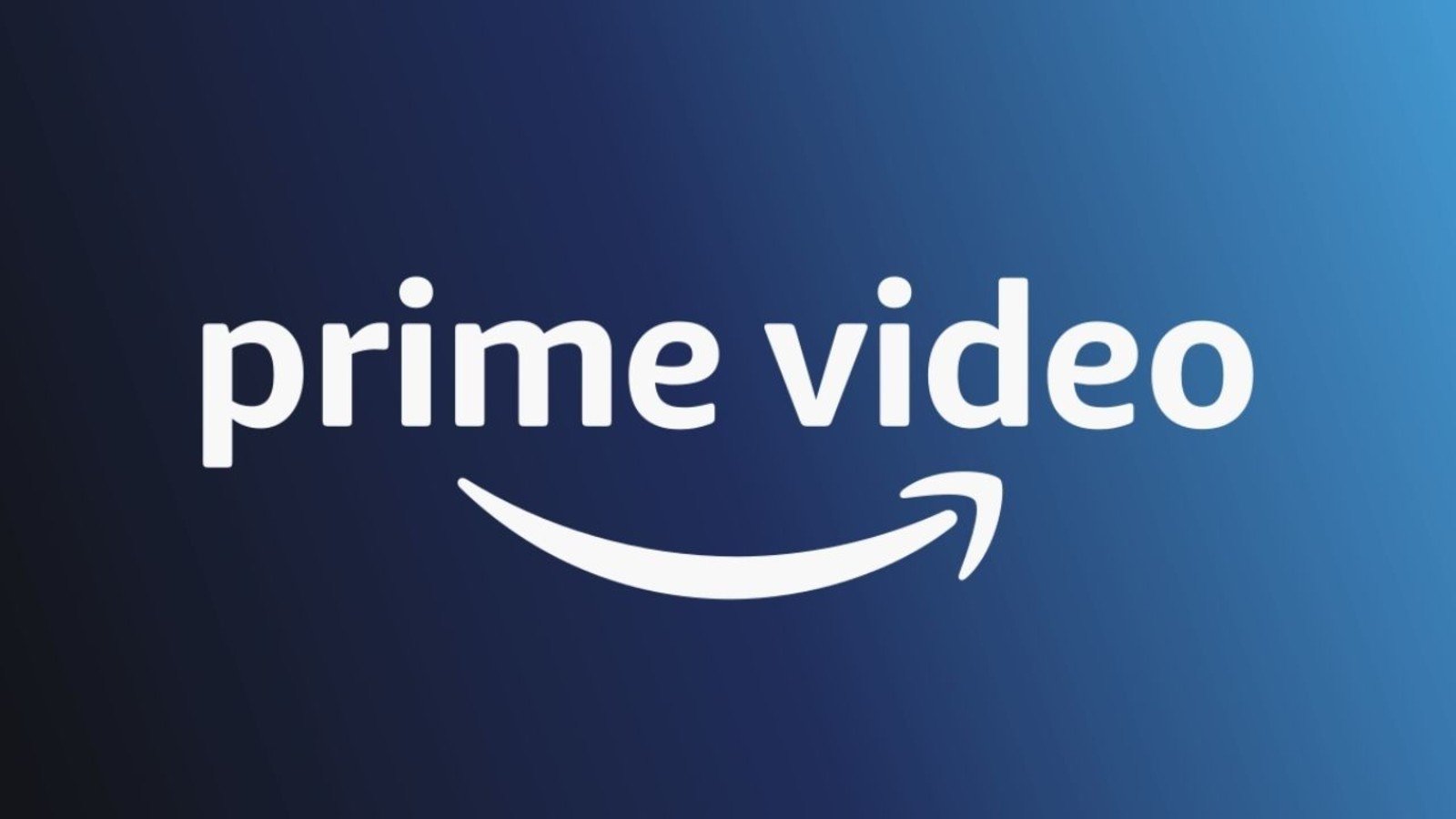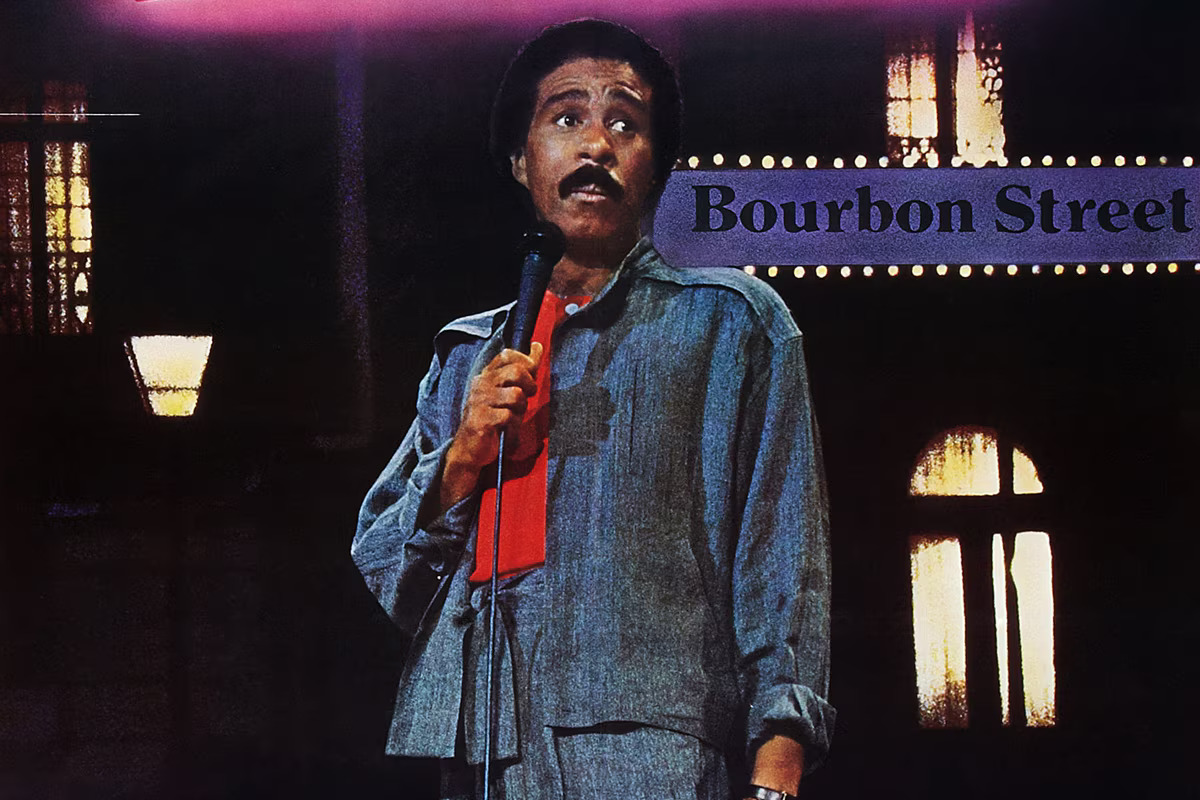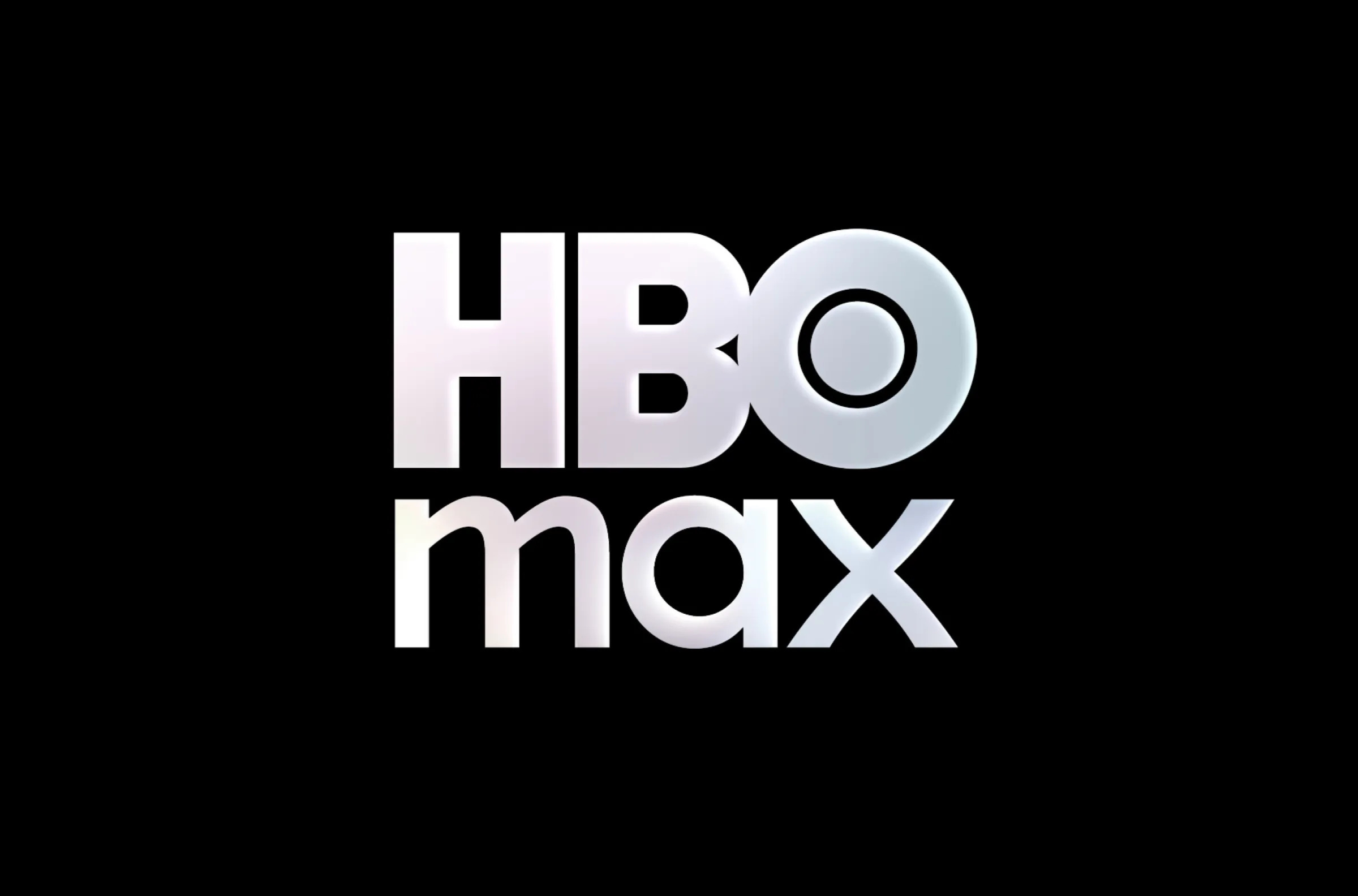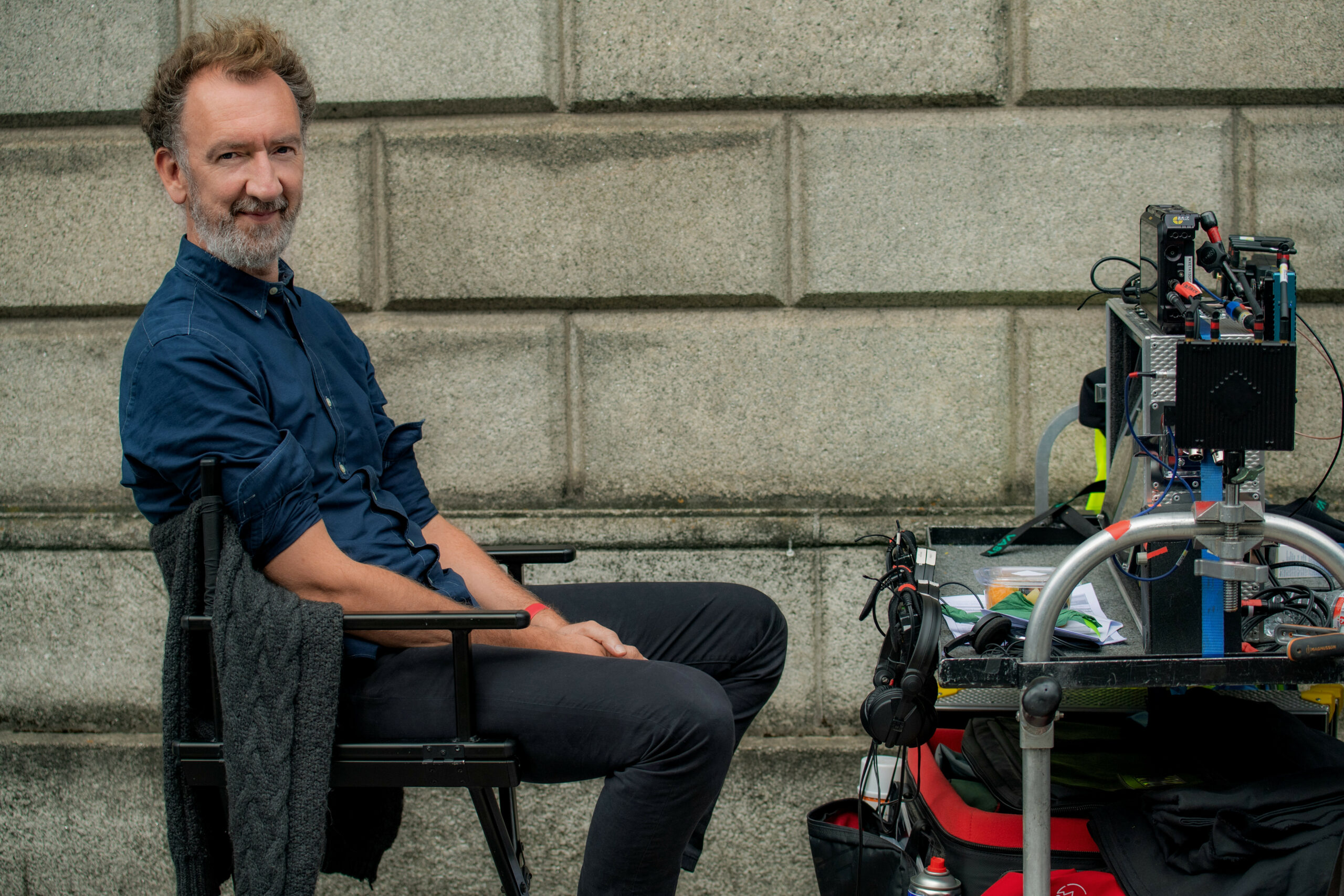
John Carney spoke with Solzy at the Movies about the crowd-pleasing Flora and Son, which is now streaming on Apple TV+.
Flora and Son marked the third time that Carney world premiered a film at Sundance following Once and Sing Street. Begin Again played at both TIFF and Tribeca ahead of its 2014 release. Apple quickly acquired the rights following the Sundance premiere.
It’s so nice to see you for the first time since Sundance.
John Carney: How are you?
I am doing well. Yourself?
John Carney: I’m doing great. I’m trying to decipher what the poster is. Oh, I see. Yes, Kenobi.
Yep.
John Carney: Yeah, got it.
How thrilled were you to premiere Flora and Son on the mountain in Park City and then have the film selected for Toronto?
John Carney: It’s sort of the stuff that dreams are made of. I did not expect to—you sort of think when you get a third film in Sundance, they’re gonna find out that I’m faking this—I can’t be getting away with this a third time. It was weird. The timing was perfect. I mean, we pushed hard to get this film done in time for Sundance because we did feel like that’s the place to have it launched. But it felt like the timing was perfect—just wasn’t many other movies like this. I think the Sundance audience were like, bring it on. Singing music and salty Dublin characters taking the piss out of Joseph Gordon-Levitt. It’s perfect for Sundance screening.
It was such a crowd pleasing film. In hindsight, I’m so glad that cast got to have that red carpet premiere.
John Carney: Oh, yeah, that’s true. Yeah, I didn’t think about that—at least they got that.
What was the genesis behind Flora and Son?
John Carney: I think I was thinking a lot about my mother and at the time of writing it, but just vaguely about her, not specifically. I wrote a few pages about two people talking on Zoom and doing lessons and it didn’t seem like it was going anywhere. And then the pandemic happened and we all started Zooming. I realized the very thing that was holding me back from making this film, and that made it seem too niche was, in fact, now helping the movie because this is a very small film, but the second that they start talking on Zoom—once the they start to do that, the audience suddenly knows exactly how that feels because of Zoom. In a way, that actually brings you closer to characters than you ever had a movie.
Yeah. What was it like to direct the cast?
John Carney: It was great. They were a brilliant cast. This was a modestly budgeted film, which is great, because you know that nobody’s there for the money or the prestige. It’s not like it’s a Christopher Nolan movie or something. It’s like, your man in Dublin. They were all there because the script and because there was something in the script that they wanted to get off their chest or whatever—something that they find funny or something they found personal or whatever. It felt every day when we were going to work that this is a unique position to be in, where I would arrive on set and the three or four actors would be looking at me ready to go, kind of like we were in a band together or something.
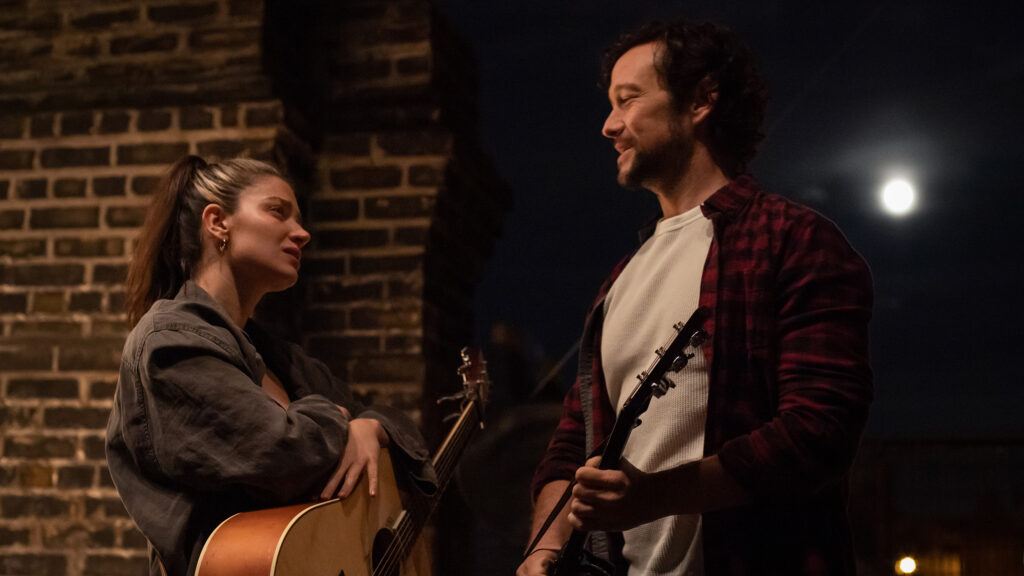
Months after seeing the film, I still feel that Eve Hewson delivered one of the best performances of the year.
John Carney: You liked her? Yeah, she’s really great, isn’t she? Yeah. I think I could see her playing in any type of movie. I think she could be very good in a comedy, but I also think she could kind of be amazing in a horror film because she’s just got such a great look. I think she’s going to do tons of interesting stuff—if there’s interesting stuff to be done. That’s the other problem with things now. I know tons of great actors, a few great actors, but they’re not stars yet because just so much crap out there.
With the strike going on preventing actors from doing press or promotion. Do you have any fears of the film being lost in the algorithm once it hits Apple TV+?
John Carney: I don’t think it will. They are an amazing team in terms of their understanding of the movie and their positioning of the movie. We all believe that the best ad for the film is the film. People do like it and they do respond to it. They’re grateful for it, which is quite unusual to have a film that parents feel like, Oh, thank G-d—finally something that actually describes how hard it is to have a kid or kids hopefully will be like, Oh, finally a film that doesn’t feel like we’re being patronized. It feels like nobody made this—I mean, I tried to make movies that I step away from. My main job directing a movie is to try and be invisible and try and let the film seem like it would have been made or something. You know what I mean? I mean, it’s obviously I’m there and everything, but audiences, I think, will respond to it. I think they know what they’re doing and I’m confident that the film will reach the people who want to see that movie.
Pandemic aside, what was the most challenging aspect of the production?
John Carney: It was a pretty good production. I mean, me being 50 was probably the most challenging part of it because I’m getting old and the energy to make micro-budget movies or any movies—you’re just deplete. Filmmaking is like this strange thing where you get the amount of days that you’re going to film for and you’re required to make art every day you go to work. There’s some days where I’m like, I’m not an artist, I just couldn’t care less about this. But then the day after, I’m really on again, but you can’t make a movie like that. You can music a bit more like that because it is like, I’m not feeling it today; I’m going out for a walk or I’m gonna play PlayStation. But you just can’t do that on a movie. Well, you could, but you’d get fired very quickly.
Yeah. I was just reading a book where screenwriter said that even though his contract was 9-5, he was coming in at 2:30 PM in the afternoon.
John Carney: (Laughs) Yeah, I think this. I would ideally like to make films that are an extension of my life and aren’t my work, but are a continuation of what I’m doing with my days and just that the film would come out of that and not be a thing you’d turn on the switch every day.
What was the songwriting process with Gary Clark, especially since you all have a shorthand from working together for a few years now?
John Carney: It’s always good working with Gary. We enjoy working with each other and we kind of get the same music. And yeah, we do have a shorthand, actually, you’re right. We’re not precious with each other so I feel like I can tell him he’s barking up the wrong tree, or I can send him something and he’s like, I’m not feeling that. There’s no preciousness about it, which you often would get with songwriters where you’re like, sorry, you sent me all the songs. People send me a lot of songs and I turned a lot of them down and I feel like I’ve hurt the person’s feelings. I don’t feel that with him. I feel like, okay, Gary acts like he’s not precious.
Can you talk about the rehearsal and composing for “The High Life?”
John Carney: Yeah, that was a fun song to do because it had to be very specifically within the parameters of the characters performing it, because they wrote it. It can’t suddenly become a super complex Steely Dan song as much as I would like that. It has to be within the eight chords that you would have learned over a few months. It has to be with a drumbeat from a kid who doesn’t really know how to program very well but you can still try and make something nice out of that. Because actually, nobody wants to listen to that so you have to have a bit of movie magic. You have to you have to allow yourself the tools to tell your story effectively and create atmosphere and want people to watch the film again. It’s not a documentary. It was fun song to do—because I love the song. I think it’s as good as any song in my in any of my films, but I think that it’s very specifically hers.
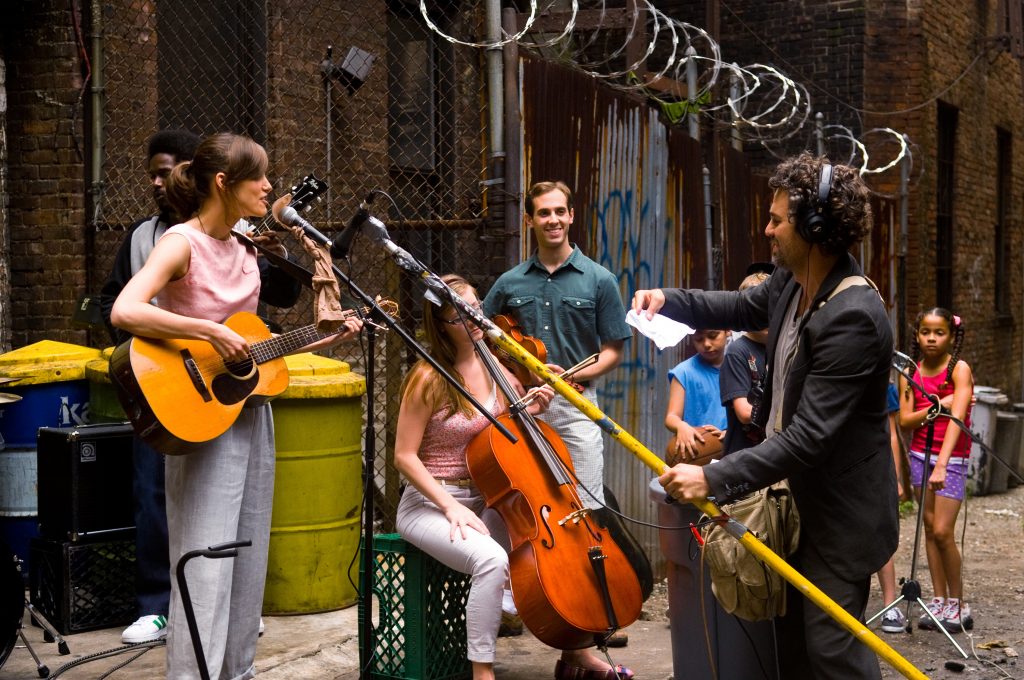
Nearly 10 years later, I still listen to the Begin Again soundtrack very often.
John Carney: Do you? Which song do you like particularly in it?
There’s too many to choose from!
John Carney: Yeah, I think “Lost Stars” is the killer.
Yeah.
John Carney: That’s a really great song.
Yeah. I especially liked Keira Knightley’s version compared to Adam Levine.
John Carney: Oh, yeah. Interesting.
They’re just two different songs when you play it acoustic compared to all that other stuff.
John Carney: Yeah, absolutely.
It was such a pleasure to chat with you today. Thank you so much for your time.
John Carney: I appreciate it. Thanks a million. Take care.
Bye.
John Carney: See you soon. Thanks, Danielle.
Flora and Son is now streaming on Apple TV+.
Please subscribe to Dugout Dirt and Solzy at the Movies on Substack.
